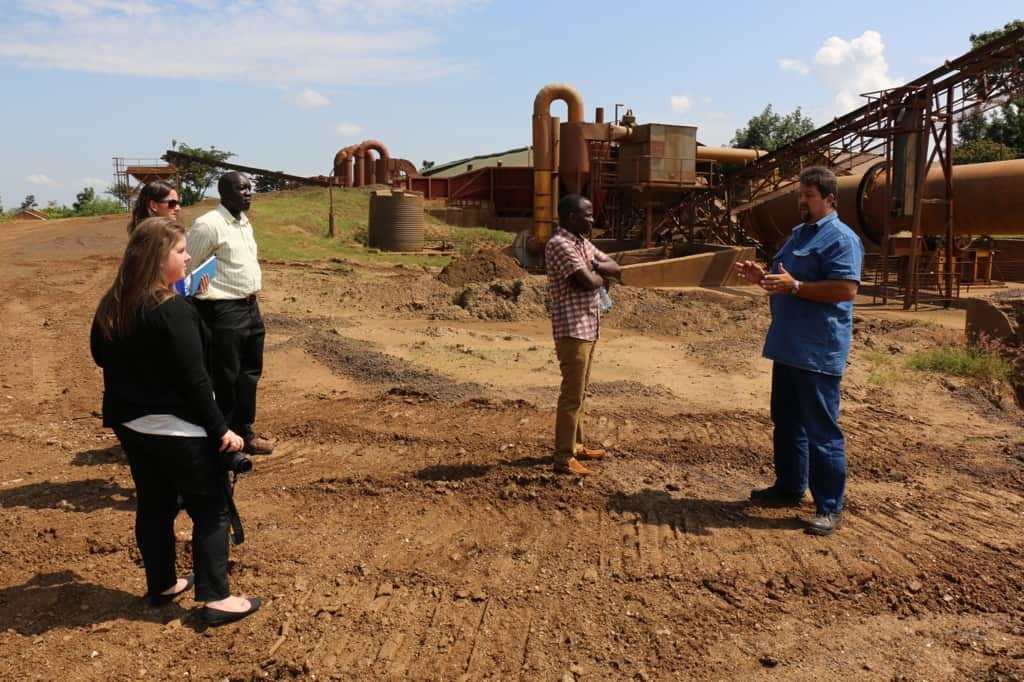Uganda’s mining sector was at a key moment of change in 2013 as the government was completing an ambitious geological survey and was keen to reignite industrial mining in the country. The sector was a significant part of Uganda’s national economy after it gained independence in 1962, but over time, it had declined due to mismanagement and a lack of investment. Decades later, most of the country’s mineral output was coming from informal artisanal and small-scale mining (ASM), which provided livelihoods for 200,000 miners while supporting their families, communities, and many related businesses. With the geological survey pointing to significant reserves, the country was keen to capitalize on their economic potential—but the government needed to establish a strong governance framework to ensure responsible mineral development proceeded in line with international best practices.
The Challenge
At the time, Uganda’s mining legal and policy framework was outdated and fell short of the international governance benchmarks that would allow for the growth in large-scale mining the government wanted while supporting sustainable development principles.
For instance, Uganda’s mining laws did not sufficiently address mine closure, nor did they require all developers to provide adequate financial assurance to cover the related costs. This omission increased the risk of operators abandoning sites without adequate closure and site reclamation. At the same time, the government had limited capacity or funding in place to formalize its ASM sector, which was growing alongside related negative environmental and social impacts.
Photos from IGF site visit in Uganda
The country needed a new minerals policy to address these significant challenges, but its policy-makers were overstretched and under-resourced. As a founding member of the Intergovernmental Forum on Mining, Minerals, Metals and Sustainable Development (IGF), Uganda recognized the Secretariat could help address these shortcomings with its newly adopted Mining Policy Framework (MPF). The MPF, developed by the IGF membership, is a compendium of good international practices in mining sector governance and was specifically designed to help policy-makers identify strengths and gaps in their mining laws, policies, and regulations. The government of Uganda was among the first IGF members to put it into use.
Our Role
Following a request by the government, the IGF undertook a comprehensive MPF assessment. It included a comprehensive document review followed by broad in-country consultations with officials at every level of mining governance, as well as industry, civil society and community groups, and international organizations. The assessment team also visited mine sites and affected communities around the country to see how mining laws and policies were being implemented in the field.
The IGF assessment was very crucial. And from it, we embarked on major reforms, including the review of our policy frameworks.
– Vincent Kedi, Assistant Commissioner, Ministry of Energy and Mineral Development, Uganda
The IGF produced a detailed assessment report in 2015, which offered broad policy recommendations for the government on community consultation and development and mine closure. It also gave guidance on improving contract design to optimize revenue and other benefits from mining while remaining internationally competitive. After the assessment report was validated by the government and published, the IGF provided in-country training to help strengthen policy-maker capacity across several areas of mining governance to inform Uganda’s revision of its legal and policy framework.
Our Impact
Government policies and laws do not change overnight, but by 2018, Uganda had adopted a new Mining and Mineral Policy. The Secretariat continued to support the government, and in-country consultations with key policy-makers in 2020 confirmed its new policy context is aligned with the IGF’s MPF recommendations on strengthening the legal context, increasing consultation with local communities, and formalizing ASM operations, among others.
Officials in Uganda are now in the process of finalizing the country’s new mining and minerals bill, which is similarly aligned with several IGF recommendations, including much-improved language on ASM, mine closure, and post-mining transition.
“The IGF assessment was very crucial,” said Vincent Kedi, Assistant Commissioner (Licence Administration), with Uganda’s Ministry of Energy and Mineral Development. “And from it, we embarked on major reforms, including the review of our policy frameworks.”
“We have a new policy in place … and to implement this policy, we are now moving ahead to have our new Mining and Mineral Bill enacted.”
Once adopted, these changes will support meaningful change in areas such as ASM formalization, mine closure, financial assurance, and financial benefit optimization.
“We hope that these new reforms in our policy, legal, and regulatory frameworks, arising from the IGF’s MPF assessment, will help us to address all of the challenges we have in the sector and will help our mining sector take off and achieve its potential,” Kedi said.
Uganda is demonstrating remarkable leadership, with its new policy and draft bill reflecting the priorities identified in IGF’s assessment. On some topics, such as gender equality and climate change, it even goes beyond the IGF’s framework coverage, indicating the country’s strong commitment to good mining sector governance and sustainable development.


